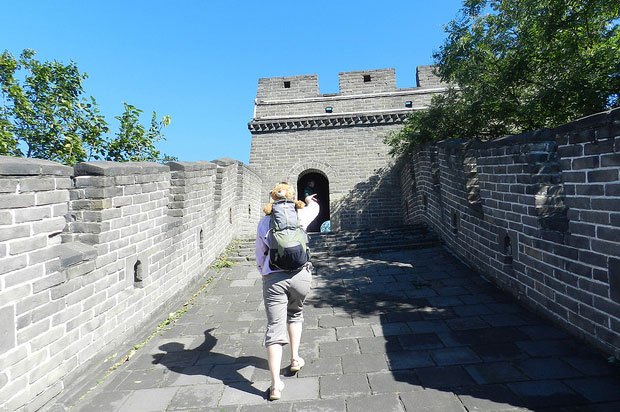Volunteer abroad with EVS
Volunteering overseas for free and pumping up your CV at the same time ... sounds too good to be true, right? Yet there is a way to do both at the same time; it's called European Voluntary Service (EVS).

Hands up if you think this photo is a bit cheesy.
What is EVS?
EVS allows UK residents aged 18-30 to carry out a full-time volunteering opportunity abroad from two weeks to a year. It’s funded by the European Union’s Youth in Action programme, through the British Council.
You don’t need any qualifications to apply, and volunteers are selected regardless of their background. You can go anywhere in Europe and to some countries in neighbouring regions.
There are two types of EVS you can opt for:
- Short-term (from two weeks to two months)
- Long-term (from two to 12 months)
Your travel is paid for, your accommodation is paid for, and you even get pocket money to spend while you’re out there. The aim is to learn more about other countries, mix with different people, and get more of those all-important ’employability’ skills you’re always told about.
How does the EVS scheme work?
EVS works in partnership between:
a) The volunteer – i.e. you
b) The sending organisation – An organisation that helps you apply and supports you while you’re abroad
c) The host project – the project you’ve chosen to work on whilst you’re out there
There’s a massive range of host projects all over Europe to cater for interests such as sport, culture, social care and the environment.
“Young people get so much out of it. It really opens their eyes to life outside the UK,” says Chloe Foster, EVS administrator for sending organisation Concordia. “EVS isn’t just about the work and volunteering, but the whole experience and meeting people from other countries. Best of all, it’s open to everyone.”
What’s it like to be on an EVS scheme?
Simon Thornton, 24, spent 10 months in Armenia on the EVS scheme, organised by a ‘sending organisation’ called Asha Foundation.
“It was a mad experience. I met so many different people with so many different ways of life. People always talk about going on ‘gap yahs’ and finding themselves and it seems trite, but this experience really did shape my life in such a positive way,” he says. “Some people spend thousands of pounds on volunteering projects abroad, saving for a year to hold a koala bear in a sanctuary in China, but I got this incredible experience for free.”
His experience inspired him to do a philosophy masters and he’s been offered a job back in Armenia after he graduates. “It’s not only been undeniably one of the most positive things in my life, but it’s set me up for my future as well,” he says. “EVS isn’t a case of running away for a year and returning home back to square one – it’s equipping you with skills that make you more employable.”
So how do I go about applying for EVS?
Surely this marvellous scheme is over-subscribed? Actually, it’s not. There are lots of EVS projects out there that need you, so here’s how to go about getting involved.
First, register with an EVS sending organisation – preferably one local to you – using the list of registered organisations on the British Council’s website (this is a PDF available when you click on ‘How to get started as an EVS volunteer?’). It’s also possible to suggest an organisation you’d like to volunteer with apply to become an accredited sending organisation.
Think about the sort of placement you’d like to do so you can tell the sending organisation. Although the more open-minded you are, the wider the range of opportunities are out there for you. You can then search for projects that interest you and start your application process.
Don’t expect things to happen quickly, though. Chloe warns that the timescale between applying and actually jetting off can take a while – usually between six to nine months.
“The process can be quite long, although there are some last-minute opportunities that come up that mean you can go away quicker,” she says. “The good news is that the likelihood of getting a place is quite high. There are plenty of projects out there, probably more projects than volunteers, so generally everyone who applies ends up going on a project.”
Photo of group of volunteers by Shutterstock
Next Steps
- Chat about this subject on our Discussion Boards.
- Need help but confused where to go locally? Download our StepFinder iPhone app to find local support services quickly.
By
Updated on 29-Sep-2015
No featured article














